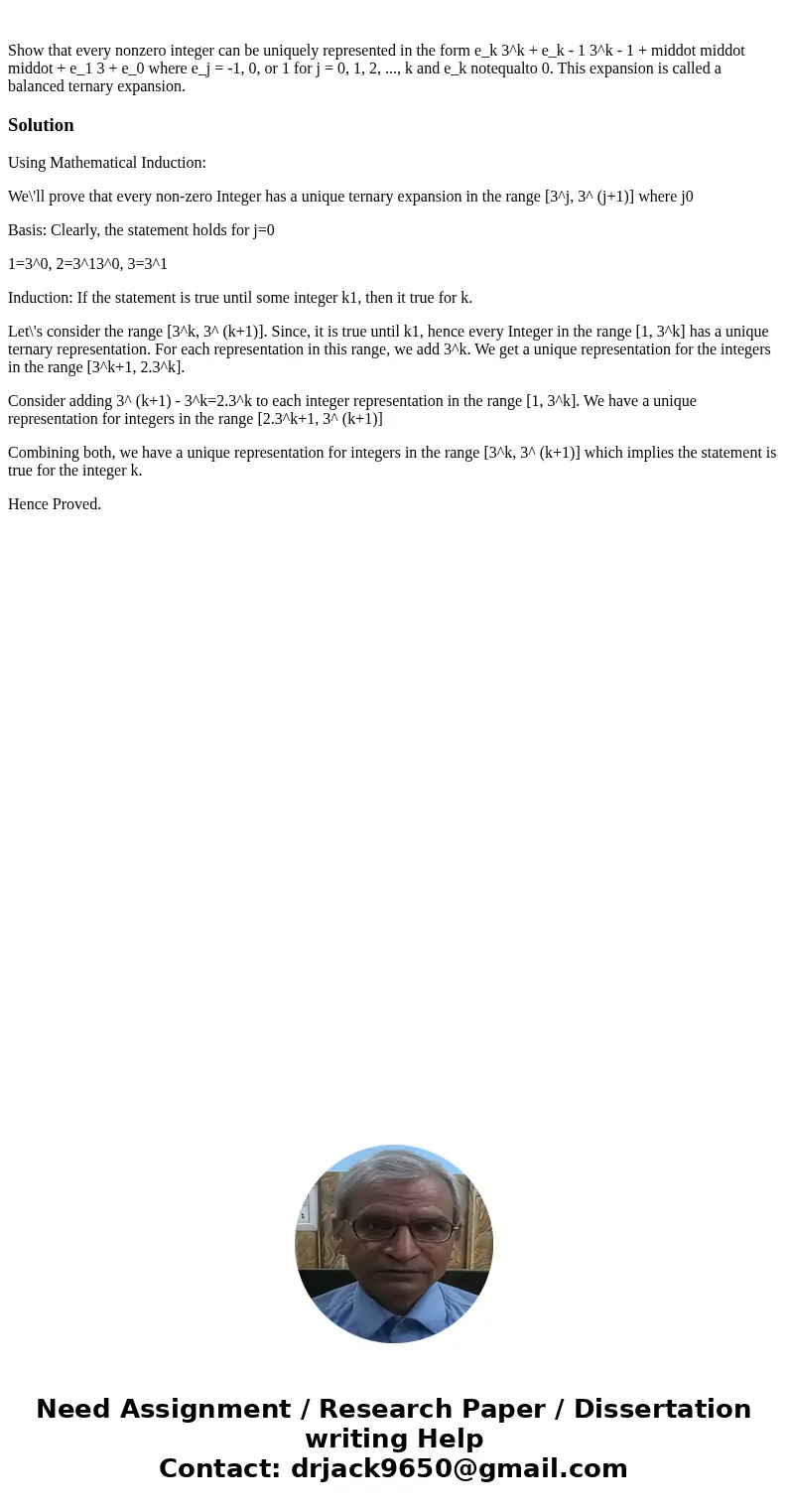Show that every nonzero integer can be uniquely represented
Solution
Using Mathematical Induction:
We\'ll prove that every non-zero Integer has a unique ternary expansion in the range [3^j, 3^ (j+1)] where j0
Basis: Clearly, the statement holds for j=0
1=3^0, 2=3^13^0, 3=3^1
Induction: If the statement is true until some integer k1, then it true for k.
Let\'s consider the range [3^k, 3^ (k+1)]. Since, it is true until k1, hence every Integer in the range [1, 3^k] has a unique ternary representation. For each representation in this range, we add 3^k. We get a unique representation for the integers in the range [3^k+1, 2.3^k].
Consider adding 3^ (k+1) - 3^k=2.3^k to each integer representation in the range [1, 3^k]. We have a unique representation for integers in the range [2.3^k+1, 3^ (k+1)]
Combining both, we have a unique representation for integers in the range [3^k, 3^ (k+1)] which implies the statement is true for the integer k.
Hence Proved.

 Homework Sourse
Homework Sourse